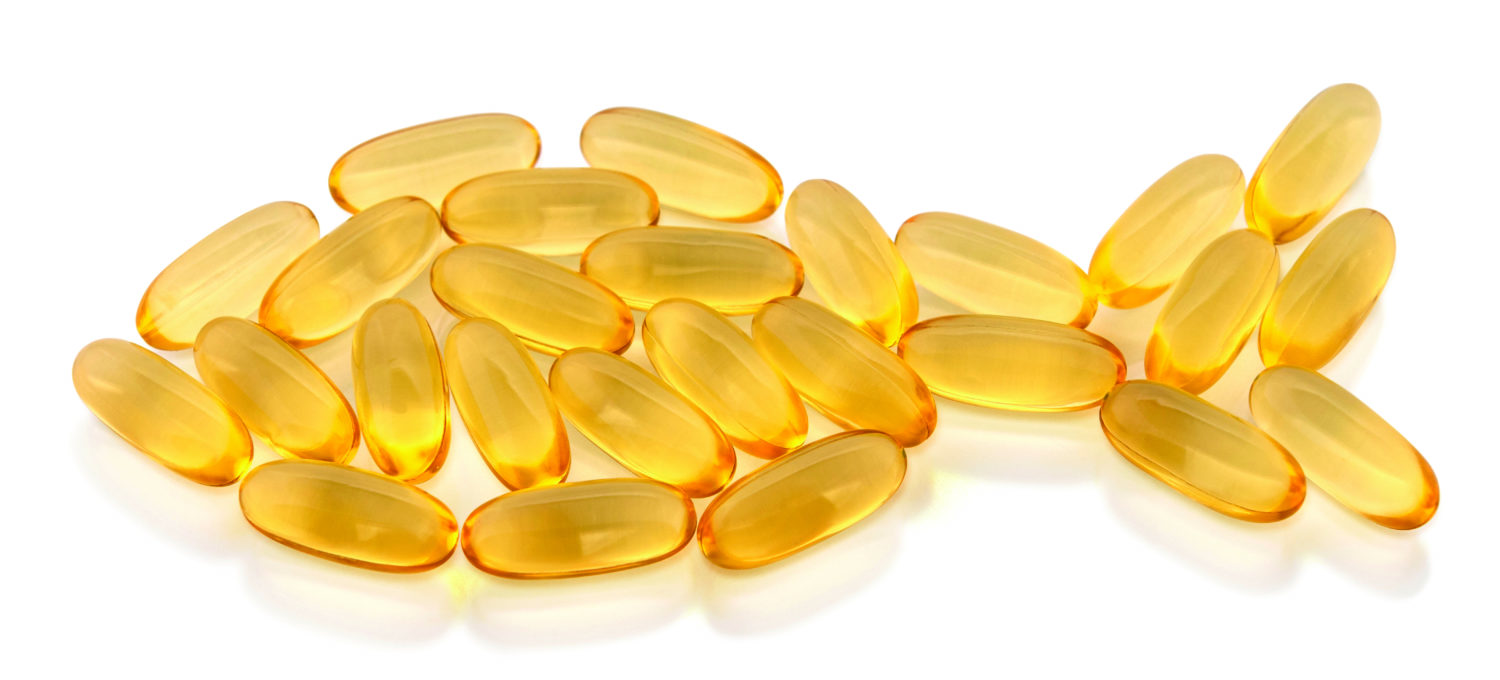Take an omega-3 supplement to burn fat and boost your brain
Your body needs omega-3 fatty acids for a wide variety of health reasons, including optimal brain function. It’s only found in eggs, certain fish and seeds, so is supplementation the smart move to ensure you get your recommended daily intake of this key nutrient?
The fatty acid omega-3 is essential for a healthy body and mind and can even aid fat-loss efforts. But with ocean pollution at an all-time high, you need to strike the right balance between getting it from fish and from supplements. Here’s what you need to know.
What is omega-3 fatty acid?
Omega-3 is an essential fatty acid, which means that our bodies can’t manufacture it so we need to consume it from our diet. It is found in high concentrations in oily fish, especially those that live in colder waters. There are six types of omega-3, of which three are important to humans. Eicosapentaenoic acid (EPA) and docosahexaenoic acid (DHA), which are found in fish, are the two compounds that have the greatest health benefits. The other, alpha-linolenic acid (ALA) which is found in plant oils, doesn’t deliver as many health benefits.
Why do I need omega-3?
It is important for normal metabolic function. And research suggests adequate consumption provides a whole host of other health benefits. These include reducing the risk of cardiovascular disease, according to the British Medical Journal, as well certain cancers, mental health disorders and inflammation. It can also help you lose weight by improving insulin sensitivity so your body becomes more efficient at burning fat, according to a study in the Journal of Physiological Research.
To find your perfect transformation plan, take the New Body quiz!
Take the New Body quiz!
How much omega-3 do I need?
In the UK there is no official recommended daily dose of omega-3 for the general population. However, the Scientific Advisory Committee on Nutrition suggests we aim for two 140g portions of fish per week, one white and one oily, which would provide a weekly intake of approximately 3.15g.
Surprisingly, despite this modest recommendation – and the fact we live on an island – the current UK average for fish consumption sits well under this target, with only 27% of UK adults eating oily fish regularly, according to the SACN. And, in case you were wondering, a cod fillet covered in batter on top of a huge pile of chips and mushy peas doesn’t count.
How do I know if I am deficient in this fatty acid?
Symptoms of deficiency include fatigue, poor memory, dry skin, heart problems, mood swings or depression, according to the University of Maryland. Even if you regularly eat fish you may still be deficient in omega-3 because of its relationship with another essential fatty acid, omega-6. The ideal healthy consumption ratio between the two is 1:1, however the ratio in most Western diets is actually closer to 1:15, according to the journal Biomedicine Pharmacotherapy.
Excessive consumption of omega-6 is increasingly common because it’s found in cooking oils, specifically palm, soybean, rapeseed and sunflower, which are used in the cooking and production of many snacks and convenience foods. Such an imbalanced ratio has been linked to an increased risk of cardiovascular disease, cancer, and inflammatory and autoimmune diseases, whereas a more equal intake has a suppressive effect on all these illnesses, according to the same journal.
What are the best sources of omega-3?
Oily fish, such as salmon, herring, mackerel, anchovies and sardines, are among the best source of omega-3. However, the tissues of many species of fish contain high levels of toxic compounds, especially mercury. Aside from occupational exposure, fish consumption is the single largest contributor of mercury in humans, according to a study in the journal Chemosphere.
Mercury accumulates with age and in relation to the position within the food chain, so large, predatory species such as tuna, halibut, redfish, shark and swordfish contain the highest levels of mercury. Tuna has the ability to accumulate large amounts of mercury, with a majority of it stored in internal organs and muscle, according to research from Germany’s Federal Research Institute for Nutrition and Food. Mercury consumption can have a major impact on your immune system, brain health and function, and yourr reproductive system. It has also been linked to Alzheimer’s and Parkinson’s, according to the Environmental Toxicology and Pharmacology Journal.
How do I take an omega-3 supplement?
There is no official UK recommendation for how to supplement omega-3. But the US Food and Drug Administration (FDA) recommends that adults can safely consume 3g of combined DHA and EPA per day, with no more than 2g coming from supplements.
Without being a complete substitute for eating fish, omega-3 supplementation can ensure adequate intake without the risk of consuming heavy metals because mercury and other heavy metals stay behind in the liver, flesh and other parts of the fish when the oil is extracted, according to the Cleveland Clinic Journal of Medicine.
Here’s three reasons why you need to eat more fats if you want a better body and a sharper mind!
To find your perfect transformation plan, take the New Body quiz!
Take the New Body quiz!
7 ways to eat for fat loss and get a leaner and stronger body

